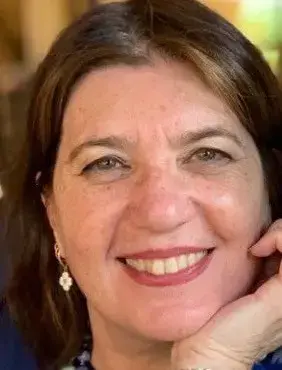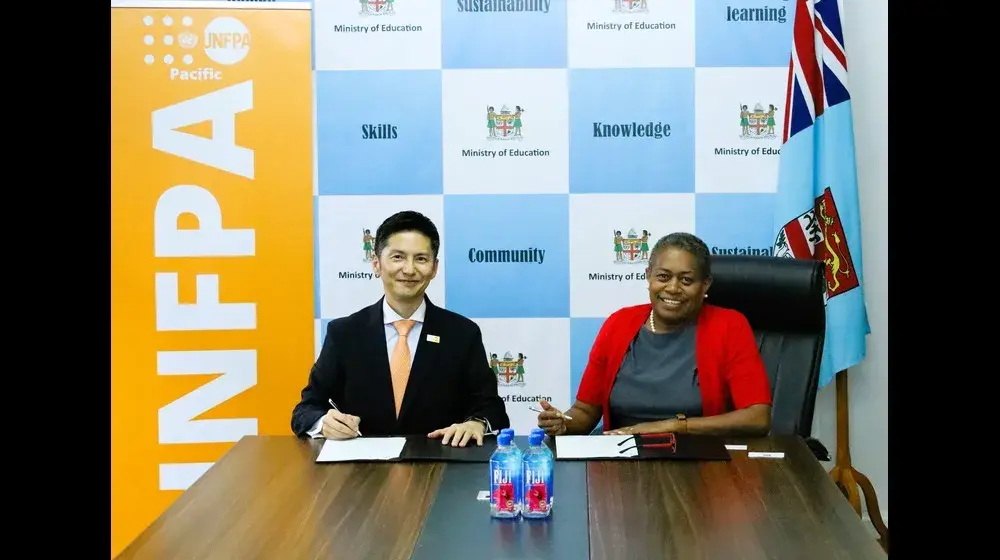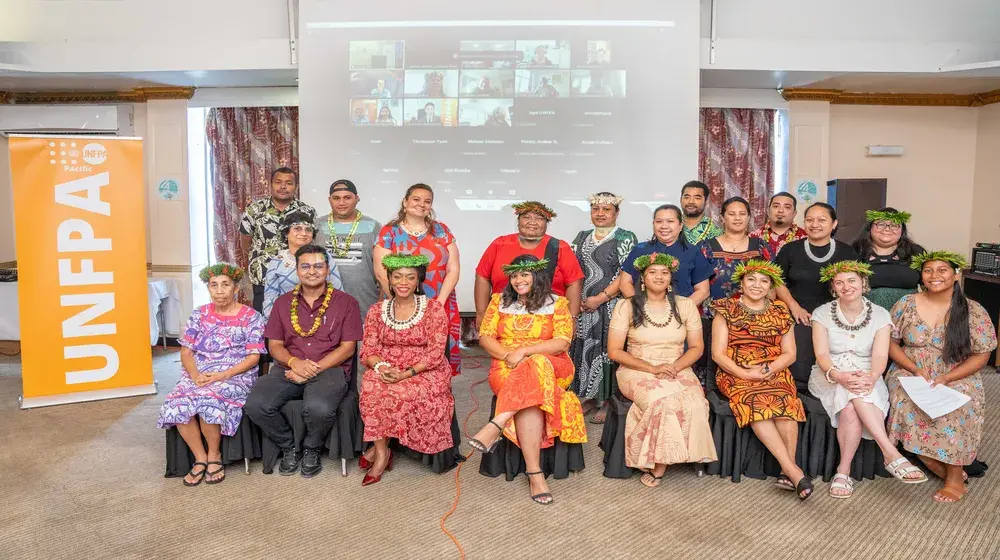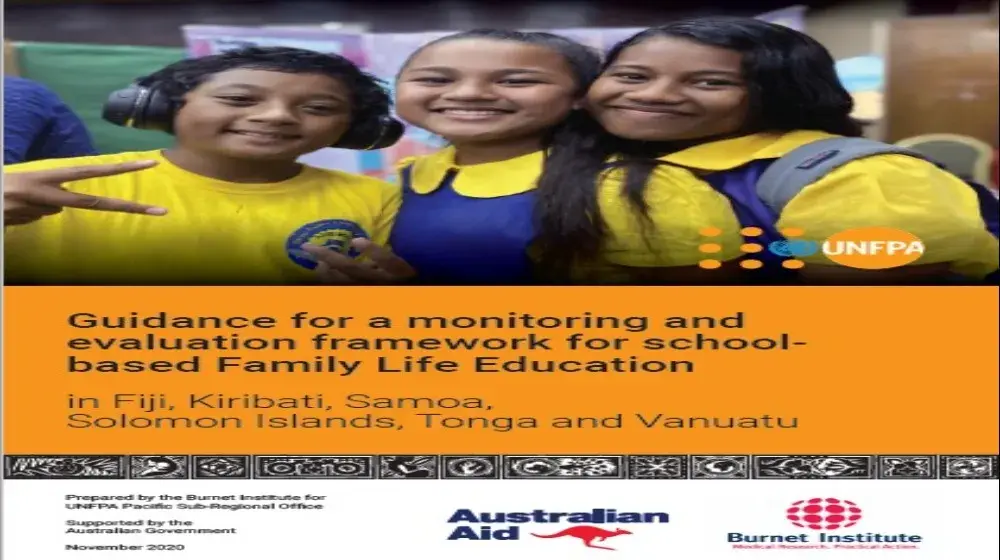Opening Remarks by
Dr. Jennifer Butler,
Director and Representative, UNFPA Pacific
Pacific Regional Sharing and Learning Meeting on Family Life Education Comprehensive Sexuality Education
Thursday, 7th October, 2021
[Salutations]
Minister for Women Youth & Social Affairs, Government of Kiribati; Honourable Martin Moreti
European Union Representative Mr. Silvio Lazzari,
Mr. Chris Golden, Director, Programmes and Operations IPPF Pacific
Senior government officials, Staff from Ministries/Departments of Education,
All the young people here and listening wherever you are
Civil society partners and our wonderful MC, Tura
Distinguished guests, and our valued regional partners across the Pacific. Mauri, Bula vinaka, Malo e lelei, Talofa lava, Iakwe (yuck-way), Gud morning. Warm Pasifika greetings to you all.
Almost one year ago, on the 3rd December 2020, we gathered in a similar setting to launch the International Technical and Programmatic Guidance on Out-of-School Comprehensive Sexuality Education in the Pacific. It was an exciting event. And more importantly, it became the catalyst for changing the landscape of Comprehensive Sexuality Education/Family Life Education in the region.
During this one-year journey, we have seen heightened political interest, the establishment of CSE/FLE committees, an increase in dedicated human resources, and the building of strategic partnerships with national level civil society partners to strengthen the operational environment for both in and out of school CSE/FLE.
- Kiribati has significantly advanced building teacher competencies to deliver CSE/FLE according to international standards
- Vanuatu and Samoa established new FLE multi-stakeholder committees.
- The Solomon Islands and Tonga have built strategic partnerships with civil society organisations to reach out of school young people,
- And in Fiji, RMI and FSM Ministries and Departments of Education have demonstrated commitment, resilience and resolve in mobilizing support for CSE/FLE.
The Pacific has worked with such agility and alacrity to ensure that two million young people have a future where they are empowered to make informed decisions regarding their sexuality and guaranteed well-being.
For that we applaud you.
As UNFPA, we are proud to be associated with this tremendous progress and believe that today’s meeting is only the start towards nurturing this momentum across the region.
We are also proud to be associated with the Spotlight Initiative to eliminate violence against women and girls. The Spotlight Initiative has provided the financial and political impetus which is critical in amplifying investments in CSE in the region. They understood the power of prevention and youth empowerment, and you are all contributing to its articulation.
And we will do all we can, with Governments, partners, young people and United Nations sister agencies to advocate for the inclusion of CSE as a key priority area for young people, and a significant component of achieving the demographic youth dividend across the Pacific in the development of the United Nations Sustainable Development Cooperation Framework (UNSDCF) 2023-2027.
Such longitudinal investments have changed the narrative on youth empowerment in the region. Investment in CSE/FLE is about shifting systems, reshaping gendered social norms, youth empowerment, about ensuring rights and choices for all young people, and eliminating violence against women and girls. It is not a time-bound project or programme.
It is an absolute pleasure to see familiar faces here today. It is important to use this time to reflect on what we have learned over the past year, where and how we need to recalibrate, and what we need to amplify and replicate on our forward march, ensuring rights and choices for all young people across the Pacific, wherever they may be, whoever they may love, leaving no one behind.
On Monday 11th October, we will join the world in commemorating the International Day of the Girl Child under the theme “digital generation, our generation”. I encourage you all to use this platform and explore the innovations that will help us all reach young people, especially adolescent girls, with CSE/FLE within the context of COVID19, and their evolving preference for digital platforms as sources of information.
UNFPA is grateful to work with all of you, and we are so appreciative of our partnerships with Governments across the region, with civil society and with the ICPD25 Youth Champions. And we are so fortunate to work in close partnership with IPPF SROP and Family Planning New South Wales (FPNSW). We will continue to learn, to adapt, to advocate and to serve.
As I conclude, I must extend our deepest appreciation to the European Union for funding the Spotlight Initiative, as well as to DFAT (Australia) and MFAT (New Zealand) for their investment in sexual and reproductive health and rights, including Comprehensive Sexuality Education.
Vinaka vaka levu, malo aupito, tanku tumas, ko raba.





